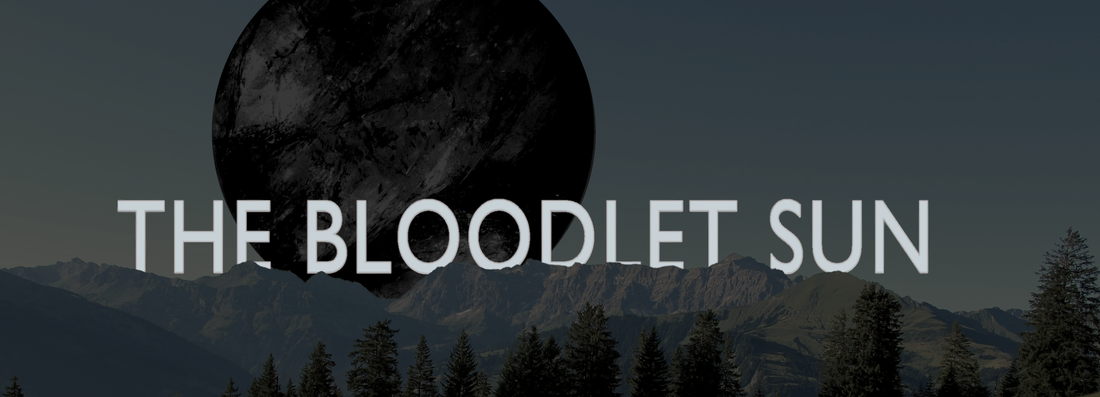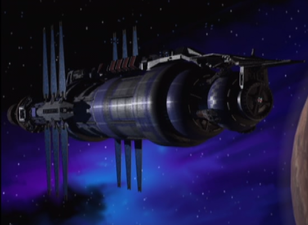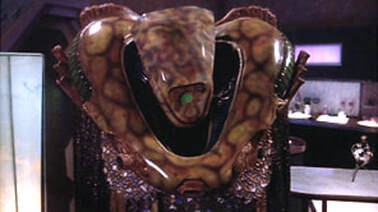Silver Wordsmith: An author's journey |
|
When I relaunched The Bloodlet Sun here a year ago, I honestly didn’t know how it would go. I’d been optimistic for the original launch as well, but that first effort died after a single chapter was posted, and then the story went quiet for more than a year. I promised myself that if I were to try again – posting a sci-fi web novel on my blog in weekly installments – that I would have to do it right. Well, now that I’m officially more than a year into this second attempt, I think things are going as well as I could have hoped (okay that’s a bit of a lie, I could have also hoped for droves of readers but that’s beside the point).
I’ve recently completed my first full cycle of POV character chapters, introducing the readers to all six characters that are spotlighted in the first “book” of this sci-fi epic. With established characters it’s beginning to get easier to move the story forward and it’s personally exciting when I get to dive back into each story. My buffer, though it’s not quite as robust as when I started (I was taking no chances so it was a hefty one) is still quite healthy and has grown in the last few months. No chapter has given me quite as much grief as much as chapter 2, which is what had originally derailed the publication in the first place. This chapter was Kalirit’s first chapter (released as chapter 3) and I’m coming up to writing her second chapter so let’s see if she was the real culprit here all along. But other than that little ominous aside, things have been going well. Since bringing The Bloodlet Sun back to this blog, I’ve also searched for other publication outlets for the space opera, launching on Royal Road late last year, where I’ve gathered 24 readers, and then launching on Tapas a couple of weeks ago, where only have a handful of views and 2 subscribers. Now I admit it doesn’t sound like much for something that’s been up for a year and I’ve learned to be okay with that. I kind of have to, otherwise it becomes too easy to get discouraged. What I have to remind myself is why I started publishing The Bloodlet Sun in the first place – that it was a project I had been contemplating for years and I could no longer see any other viable outlet for other than through the web novel format. I think though looking at my current commitment to it, what was intended to be a side project has actually become the main focus of my writing resources. Sometimes I question this path, but I have to remember just how much fun I have writing it, and also sharing it with the world. That handful of subscribers is my one true tangible readership, and I can’t dwell on how small it might be compared to anyone else, because it’s the most I’ve ever had. What I’ve learned over this past year is how much I still love this project, that once it started taking shape, I was not bored of it, but rather only became more excited as to where it could go, and already I built more on top of my original outline than I could have imagined just a couple of years ago. I’m finally, in my 30s, beginning to learn to write for the fun of it, and not for some hard-to-pin-down external concepts such a publication, praise and accolades. Maybe it’s this new attitude that would inadvertently lead me to all three. Or maybe I just continue to have fun with it and to spin these tales set in the Known Reaches two thousand years from today.
0 Comments
Time to share a success story! Spoiler alert: it’s a pretty tiny milestone, but when you’re a writer that barely has one foot off the ground floor, I think it’s important to focus on the little things. As I’ve mentioned recently, I started posting my science fiction (space opera or science fantasy, labels are so passé) web novel The Bloodlet Sun, on Royal Road on the same release schedule as I do here. And now over the weekend, The Bloodlet Sun reached ten followers there. To put that in context, the best fictions on RR have followers in the low thousands. For further context though, how many fictions have no followers at all?
For those of you unfamiliar with Royal Road, following a fiction is essentially just saving it as a bookmark, which, again, doesn’t seem like much, but it’s crucial to look on the bright side of things. Don’t see it as “just” a click on the “Follow” button. See it as someone who read your work, and found something in there that was worth spending more time on. That’s how I choose to see it, which makes that round little number that much more exciting. Also exciting then are the two people who chose to click the “Favourite” button, therefore showing that in their mind my work is at least somewhat elevated above the others things they read. I feel like, when it comes to little rays of sunshine in your writing, you have to sweat the small stuff. You deal with so much criticism, constructive or otherwise, and so many rejections for a craft that is deeply personal. It’s like taking your heart out from your body, where it has the protection of your sternum and ribcage, and putting out for the world to handle. A world that frequently ignores the “Caution: Fragile” label. So when it comes to the negative stuff, sometimes it’s in your face, hard to ignore and easy to internalize. Which is why successes, no matter how small, are a precious thing that require all your attention. They’re good for your motivation and even more importantly, they’re good for your mental health. Plus, if you choose to put them all together into a single mental reel, then you’ll be better able to see your worth as a writer above all that noise. Not only that, but successes snowball. Sure, I have ten followers now, and sure, that might be the only ten followers I ever have. But that’s for the universe to decide, not for me to dwell on. Those ten followers could be the first ten followers out of that coveted thousand, or two thousand. That’s how I will choose to see them. If someone else chooses to think it’s not a big deal and thinks that I’m making a mountain out of a mole hill then guess what, every mountain starts with a molehill and I’ve still got a bucket and a shovel. When I started releasing The Bloodlet Sun in earnest last September, I had no idea what I was doing. I still generally have no idea, but I have learned some lessons on the way. I always argue that no time spent writing is a waste of time, because even your worst work will teach you something that you will use in your best work. Not to say that The Bloodlet Sun is in that “worst” category, just that any mistake is a lesson in disguise. And the lesson of the day is chapter lengths.
|
Michael SerebriakovMichael is a husband, father of three, lawyer, writer, and looking for that first big leap into publishing. All opinions are author's own. StoriesUrsa Major Categories
All
Archives
January 2024
|
Proudly powered by Weebly



 RSS Feed
RSS Feed